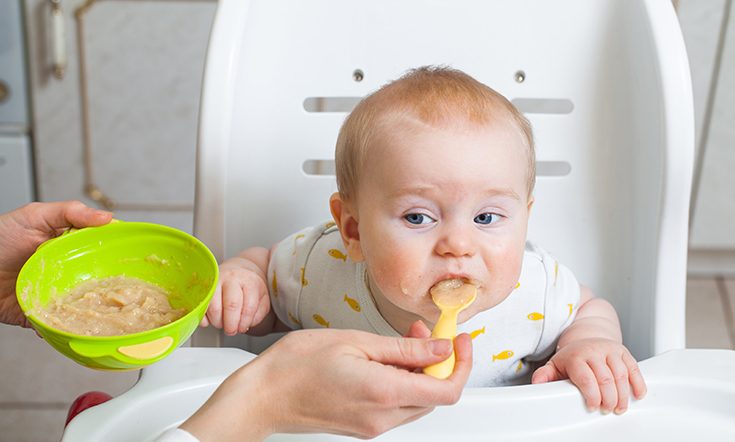

Supporting the brain at an early age is essential. I recently read an article by Lisa Mosconi, Ph.D, who, as associate director of the Alzheimer’s Prevention Clinic at Weill Cornell Medical College (USA) has focused much of her work on the rigorous study of how our lifestyle choices – especially our diet – influence the health of our brains. Not just to prevent or mitigate Alzheimer’s but also to maintain and maximise cognitive power over a lifetime.
Much of what she published in the article made great sense to me and aligns so well with what we know about general good health and eating practices but to hear it in the context of a baby’s brain development really struck a chord.
She stated that, “The first three years of a child’s life are especially critical for brain development. During this window of time, a baby figures out how to think, learn, behave, and explore, setting the stage for a fully formed set of cognitive skills.” This statement aligns so perfectly with my stance on the importance of a good, varied diet in the early formative years that I thought I’d share with you her list of the best foods for a child’s brain development
Best foods for child’s brain development:
- Oats
Oats are rich in vitamin E, zinc, and B-complex vitamins. Its high-fiber content, coupled with a low-glycemic index, slowly releases glucose into the bloodstream, supplying the kids with a steady stream of energy.
- Berries
Berries (blackberries, blueberries, raspberries, dark cherries, mulberries, and goji berries) are lunch-box-friendly and packed with vitamins that help boost memory and cognitive functioning. They are also great sources of natural sugars and fiber, a nutrient important for a healthy digestive system.
- Apples and plums
As all mums know only too well, kids often crave sweets. Apples and plums are excellent sources of antioxidants that help keep your child healthy and at the same time are soft, sweet, and full of fiber. Apple puree and pureed plums make for great first solid foods to aid digestion and keep things moving.
- Sweet potatoes
These colorful tubers are a great first food for babies, who tend to enjoy both the sweetness and creamy texture. They are packed with antioxidant beta-carotene and vitamin C, as well as iron and copper, which are all a brain must.
- Eggs
Eggs contain all the nutrients an embryo needs to grow. As such, they are packed with nutrients that support brain development, like omega-3 fatty acids, zinc, lutein, and choline, a B vitamin that supports memory formation and concentration. See here for when to introduce eggs.
- Yoghurt
Breast milk is the best baby food, and yoghurt (organic, plain, and unsweetened) is second best. The vitamins and fatty acids in yogurt support brain-cell growth and functioning, while probiotics support gut health, boosting your baby’s immune system and behaviour.
- Fish
Fatty fish like salmon, tuna, mackerel, and sardines are exceptionally rich in omega-3 fatty acids, which are literally what the human brain is made of – over 50% of the brain is fat, and most of that fat is omega-3 DHA, a special kind of fat found only in fish and shellfish. See link for recipe – Fish pie
- Greens
Vegetables that have rich, deep-green colors (e.g., spinach, chard, kale) are excellent sources of antioxidants and vitamins like folate, which help brain cells grow and stay healthy.
- Avocado
Some say the fat composition of avocados is somewhat similar to that of breast milk. This creamy fruit is a rich source of healthy fats that promote blood flow to the brain.
- Meat
The American Academy of Pediatrics recommends meat as a first food because it’s such a great source of protein, zinc, iron, and fat. Plus, a developing brain (which means anywhere between birth and adolescence) needs more saturated fat than an adult one.























